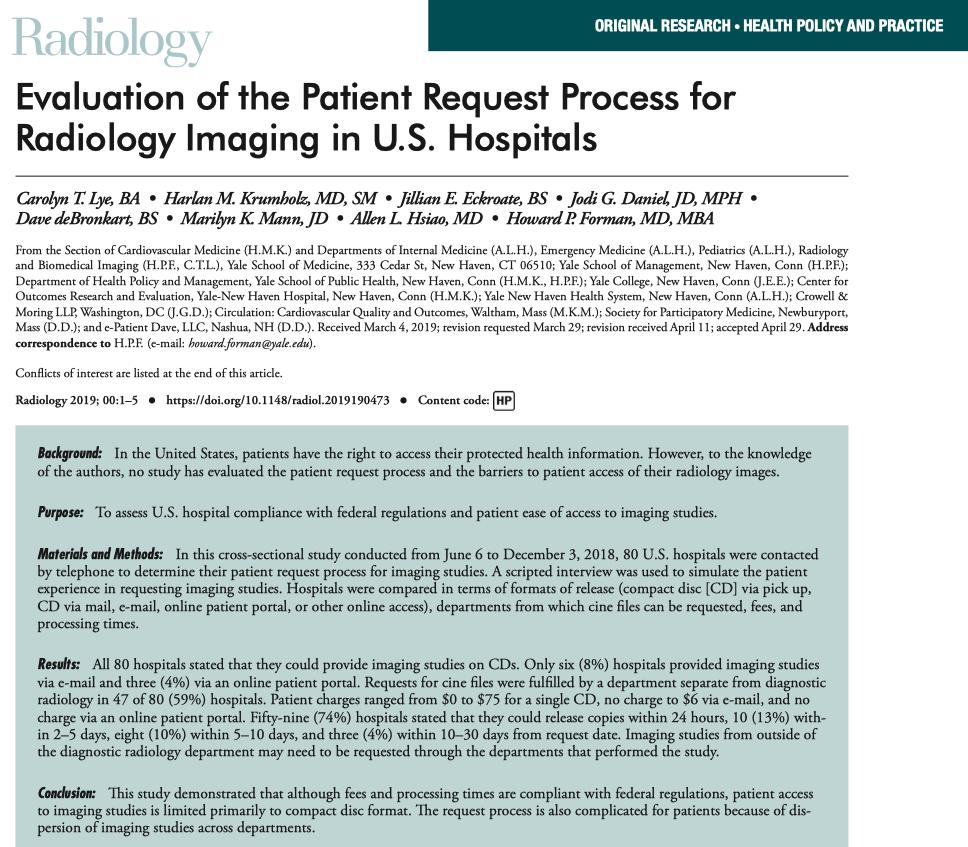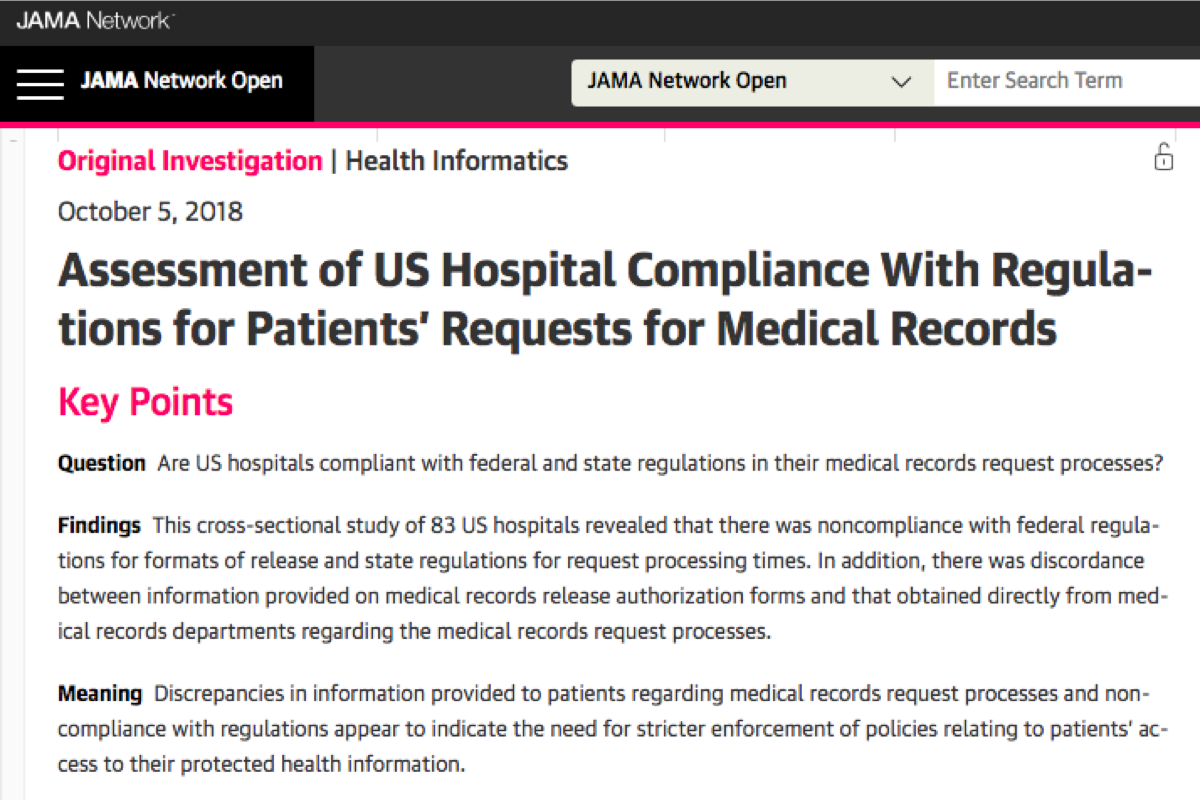
Thread/ Here's my walkthrough of our new @radiology_rsna paper examining barriers to patient access of radiology images! @thehowie @hmkyale @JodiDaniel @ePatientDave @MarilynMann @allenlh @YaleMed @YaleRadiology pubs.rsna.org/doi/10.1148/ra… (1/10) 

Through simulated patient telephone calls to 80 U.S. hospitals, we gathered data on the patient request process for imaging studies. (2/10)
The most striking finding was that CDs were the only format universally offered by hospitals; only 8% of hospitals offering imaging studies via email and 4% via online patient portals. (3/10) 

Most contemporary devices are no longer equipped to accommodate CDs — most patients who receive copies on CDs will not be able to access their imaging studies themselves. (4/10)
Costs of release varied depending on format — for a single CD, costs ranged from $0 to $75, with 84% of hospitals not charging any fees if the CD were picked up in person. (5/10) 

Overall, hospitals fared well in terms of processing times. 74% of hospitals could release imaging studies within 24 hours, and only 4% stated that their processing times would be >10 days from request date. (6/10)
All hospitals could release the entire digital archive to patients, but at least 16% explicitly stated that they do not store imaging studies conducted before certain years, ranging from 1998 to 2012. (7/10)
Many hospitals do not have a centralized system to process requests for all imaging studies — patients may need to request imaging studies directly from the department that conducted the study (e.g. diagnostic radiology, cardiology, OB/GYN etc). (8/10) 

When called, some exemplary hospitals offered the #patientcentered option to have radiology personnel help in reviewing their imaging studies. (9/10) 

Although compliant with federal regs, current hospital practices do not give patients real access if they only offer CD format. For patients to be engaged in their care, they should be offered copies in formats they can easily view and share. (10/10)
• • •
Missing some Tweet in this thread? You can try to
force a refresh



